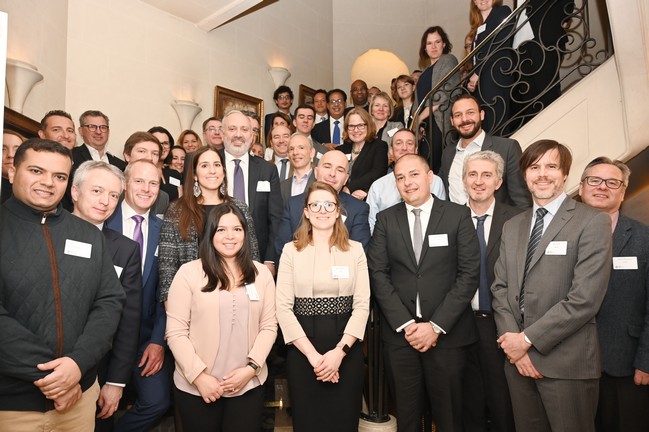1088 results found
Featured results



More results
Interactive Tendering Guidelines (“Guidelines”), prepared for the Construction Leadership Group (“CLG”) developed to inform government and industry of best practice interactive tendering.

The USD 508.62 million CLSG Interconnector Project is a landmark cross-border project involving the construction of a transmission line of over 1,300km, with the aim to interconnect the CLSG countries’ energy systems into the West Africa Power Pool (WAPP) regional energy network.
Explore the capability of 56 countries to deliver infrastructure projects, identify priority reforms and pinpoint leading practices across infrastructure governance & institutions, regulatory frameworks, permits, planning, procurement and delivery.

Global Infrastructure Outlook allows you to explore the annual infrastructure trends, needs and gaps up to 2040 for 7 sectors, 56 countries, 5 regions and the world total.


Project preparation is a critical enabler of infrastructure development and has been identified as a key pillar in the G20 s strategic roadmap to develop infrastructure as an asset class.

The Climate and Disaster Risk Screening Tools developed by the World Bank, provide a systematic, consistent, and transparent way of considering short- and long-term climate and disaster risks in project and national/sector planning processes.

Communication throughout infrastructure project preparation should be recognised as a strategic activity. It should factor in the importance of all key stakeholder groups towards the project, tailor communicative actions to engage and inform them and foster a supportive environment.
The IMF has compiled a suite of analysis, research, diagnostic tools, country reports, data sets, and other resources on the importance of public investment as a catalyst for economic growth.

A consultative workshop on the Global Infrastructure Hub’s upcoming reference guide on Output Specifications for Quality Infrastructure was held in Paris in partnership with Mott MacDonald on 15 April.
The Inclusive Design Standards bring together what LLDC consider the best of existing good practice guidance and consolidate this in a single benchmarking document to be used as a tool by design teams. This second edition of the London Legacy Development Corporation s (LLDC s) Inclusive Design Standards (IDS), originally published in March 2013, is evidence of the positive impact and continued legacy created by the enormous success of the Olympic and Paralympic Games held in London back in the summer of 2012.

This report tells a story of an urgent need for institutional support and reform in Myanmar, improvements in the enforcement against illegal extraction of resources, behavior change in all relevant stakeholders, institutional capacity building, increased funding, and improvements in data collection and analysis. If these recommendations are acted on, then Myanmar can reverse the negative trends and lead its environment on a path toward a more sustainable future. Citation

The Infracompass explores the capability of 56 countries to deliver infrastructure projects, identify priority reforms and pinpoint leading practices across infrastructure governance & institutions, regulatory frameworks, permits, planning, procurement and delivery.

The present EIB Group Complaints Mechanism Procedures (CMOP), fully implement the revised EIB Group Complaints Policy.


The third global report by Global Infrastructure Hub (GI Hub) and EDHEC Infrastructure Institute-Singapore reveals new investor insights on changing infrastructure markets.



The third global report by Global Infrastructure Hub (GI Hub) and EDHEC Infrastructure Institute-Singapore reveals new investor insights on changing infrastructure markets.


FOR CONSULTATION The draft Guidance Note on National Infrastructure Banks and Similar Financing Facilities is open for public consultation to capture your insights and feedback for the final version.
The third global report, 2019 Global Infrastructure Investor Survey, also revealed that investor appetite for emerging markets infrastructure is levelling. Respondents identified recent trends in monetary policy normalisation and greater emerging market foreign exchange rate risk as factors that may be driving investors away.
With regards to the emphasis on the proper risk allocation, the Risk Allocation Guideline, which has been released annually, becomes very essential as a key reference in assessing and allocating risks for the purpose of guarantee provision, as mandated by the regulation.






 Link
Link





